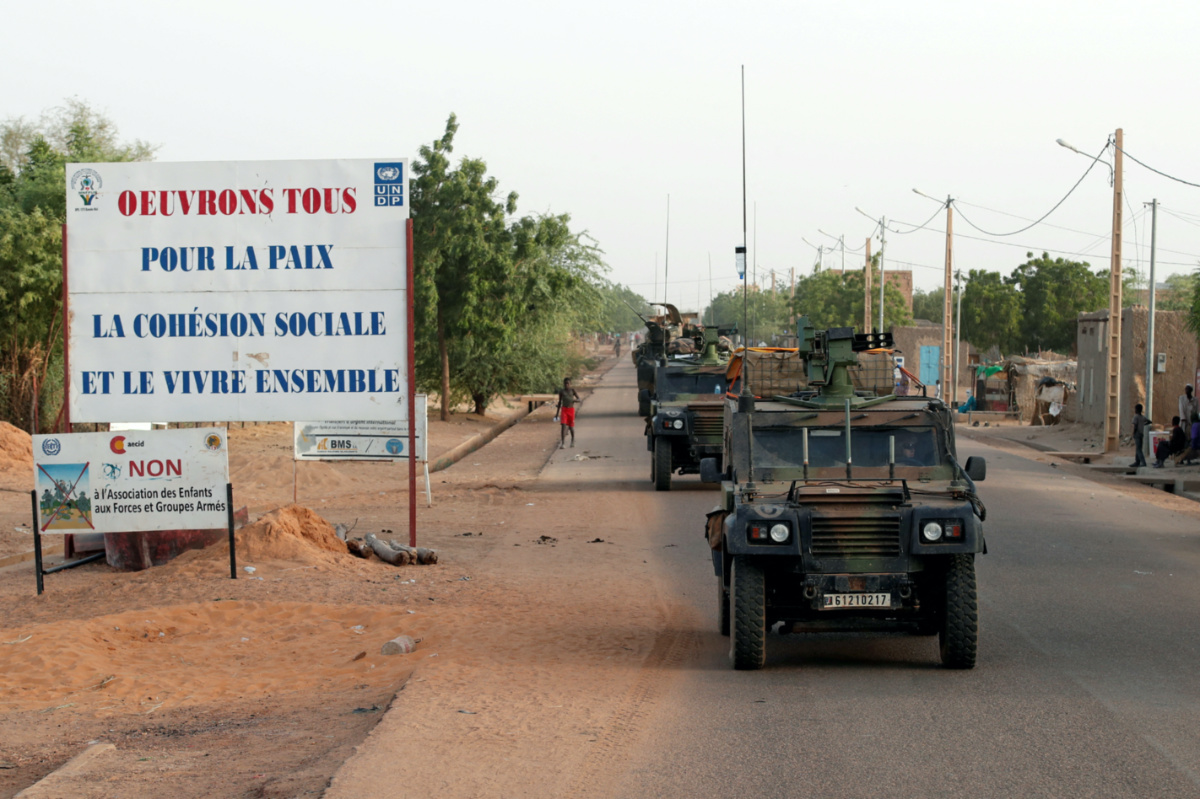Johannesburg, South Africa
Reuters
Hope of employment more than religious belief is driving people to join fast-growing extremist groups in sub-Saharan Africa, according to a report by the UN Development Programme based on interviews with hundreds of former fighters.
While worldwide deaths from terrorism have declined in the last five years, deaths in sub-Saharan Africa have risen, making it now the global epicentre of attacks, the UNDP report said, citing an annual survey called the Global Terrorism Index.

French soldiers patrol in armoured vehicles during the regional anti-insurgent Operation Barkhane in Tassiga, Mali, on 16th October, 2017. PICTURE: Reuters/Benoit Tessier/File photo.
Countries from east to west Africa have seen Islamist militant groups take over large swathes of territory, displacing millions, eroding faith in democratic government and causing widespread hunger.
The Sahel region has been the most affected, as groups linked to al-Qaeda and Islamic State expand their attacks in one of the world’s poorest regions.
The UNDP report found that 25 per cent of voluntary recruits to such groups cited job opportunities as their primary reason for joining, while 22 per cent cited wanting to join with family and friends and 17 per cent cited religious ideas.
At the same time, almost half of respondents said there was a “tipping point” that pushed them to join, such as the killing or arrest of family members by state security forces.
“The social contract between states and citizens must be reinvigorated to tackle root causes of violent extremism,” said UNDP administrator Achim Steiner.
“Security-driven counter-terrorism responses are often costly and minimally effective.”
The study was based on interviews with more than 2,000 individuals in Burkina Faso, Cameroon, Chad, Mali, Niger, Nigeria, Somalia and Sudan, the UNDP said.
These included more than 1,000 former fighters interviewed in detention facilities, prisons and rehabilitation or community centres, the UNDP said. The other 1,000 individuals interviewed were a control group drawn from the same communities to enable the study to compare the responses given by the former recruits to those given by people of the same background.
Education levels among recruits were low, and mistrust in government high, the report said.
Rather than a militarised approach, the report recommended greater investment in child welfare, education and quality livelihoods to counter and prevent violent extremism.
An additional year of schooling reduced the likelihood of voluntary recruitment to extremist groups by 13 per cent, it found.
The Global Terrorism Index is produced by the Institute for Economics and Peace thinktank, which draws its data from the Terrorism Tracker database of Dragonfly, a private sector security and intelligence service.






